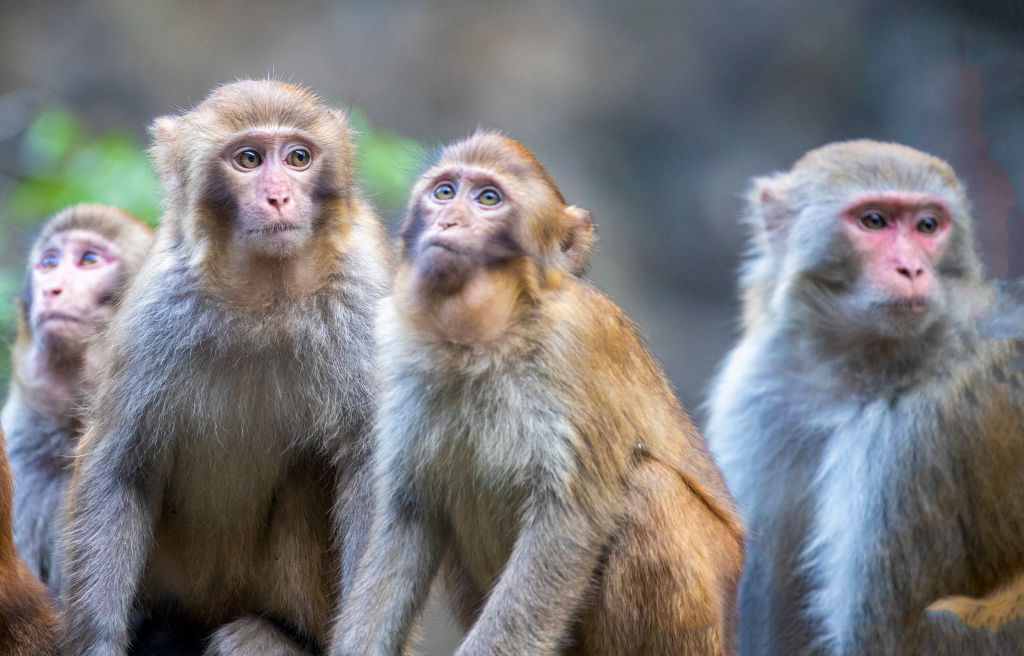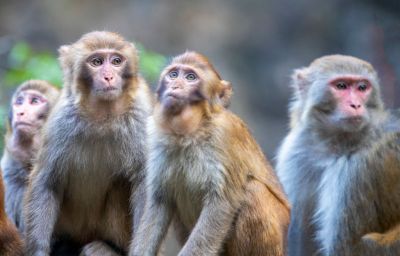America needs more monkeys.
To be more precise, the pharmaceutical industry in the United States needs them. Scientists are warning that a shortage of non-human primates (NHPs)—which have served as test subjects for Parkinson’s therapies, coronavirus vaccines, and a host of other medical treatments, preventatives, and cures—is imperiling U.S. drug development and medical research.
“There are tens of thousands of preclinical research projects that depend on NHPs to move forward that potentially could be delayed or could stop entirely,” National Association for Biomedical Research President Matt Bailey told The Dispatch. “This is the kind of thing that could grind drug development to a halt.”
Supply issues preceded COVID-19, but the pandemic turned a troubling trend into a full-blown crisis. Before 2020, about 60 percent of the roughly 30,000 NHPs the U.S. imports annually came from China, which started breeding primates for export decades ago. But China halted shipments of animals in January 2020, when the virus first became an international story. Today the country is unlikely to resume exports as the Chinese government focuses on its own medical and pharmaceutical industries.
Even before COVID struck researchers worried about the supply of NHPs. A 2018 report, for example, projected an “ongoing challenge” of NHP supply as the United States faced growing demand. While the pandemic halted exports, it also boosted demand because of the need for new research, treatments and vaccines. As demand shot up, so did prices. In 2020, the average total import cost per primate was around $5,000; at the end of 2022 it was around $20,000 and at times had gone even as high as $30,000.
U.S. medical researchers have tried to fill the void but haven’t found a solution. Cambodia now provides 60 percent of NHP imports to the U.S, but American buyers have had trouble replacing China even with help from other countries. NHP imports to the U.S. dropped from 33,818 in 2019 to 31,844 in 2021, all while U.S. demand has increased.
Now U.S. scientists are expecting even fewer NHPs to come from Cambodia in the wake of ongoing “monkey laundering” allegations. Inotiv, the largest private importer of NHPs in the United States, paused distribution of primates from Cambodia after the Department of Justice in November indicted eight people, including two Cambodian wildlife officials, for selling cynomolgus macaques they’d caught in the wild. Since cynomolgus macaques are endangered, by law they must be bred in captivity when used for medical testing. Inotiv has yet to resume distribution of Cambodian NHPs and announced it would not import any more until the company can establish on-site audits of its suppliers.
The long-term solution—building up domestic breeding colonies to help the United States achieve monkey independence—will be expensive. It’s for this reason that America grew reliant on China for its supply of primates; it was easier and cheaper for companies to get primates at $3,000 each, or less in years past, than to make an upfront investment of the tens of millions of dollars it would take to start and run breeding colonies large enough to produce the more than 70,000 primates used for research in the United States annually.
The National Primate Research Centers, private companies, and a few research organizations have colonies in place, but meeting U.S. demand would require creating new breeding colonies as well as expanding existing ones. That means hiring and training a large number of staff with specialized expertise, plus investing in more land and equipment, as well as the primates themselves. Any payoff would take years to realize. (Industry insiders are hesitant to put a number on how much money needs to be spent to get America’s primate supply where it needs to be, but Bailey estimates the U.S. needs to double its primate capacity.)
But the future benefits could be substantial. “What happens if [a pandemic] happens again, with another virus in three years? We want to be ready for that,” James Anderson, director of the NIH Division of Program Coordination, Planning, and Strategic Initiatives, noted in 2021.
The geopolitical and security implications may be as worrisome as the medical risks of relying on foreign suppliers for NHPs. “I don’t believe that the Chinese have made it a secret that they would like to be the world's leader in biotech and biopharmaceuticals,” Bailey said. “I’m extremely concerned about the next pandemic. What happens if we are caught flatfooted and we can’t do the necessary research here, and we’re in a strange geopolitical situation where we can't do it other places as well?”
In the background of conversations about shortages is the debate over whether scientists should use monkeys for testing at all. Animal-rights activists want the practice to end, though scientists don’t see that as feasible.
“The technology for replacing animal models has progressed significantly over the past decade (organoids, computer modeling, tissue culture), but is not yet at the point to replicate the complex physiology of a whole organism,” Dr. Skip Bohm, the associate director and chief veterinary medical officer of Tulane University’s National Primate Research Center, told The Dispatch. “The rapid development of effective COVID vaccines would not have occurred without research using NHP.”
It’s for this reason that legislation signed by President Joe Biden in December removing the legal requirement for pharmaceutical companies to engage in animal testing before human trials won’t likely change anything soon. While the law may have lifted the requirement for animal testing, it hasn’t banned it, leaving the Food and Drug Administration with the authority to maintain its current requirements for new drugs. The FDA has indicated it will leave its current processes in place for the time being.
“The FDA is more than likely still going to require that they show data from whole animal [rather than organ chips or a computer model],” Bailey told The Dispatch. “The last thing a pharma company wants to do, and the last thing the FDA wants to be accused of is killing people when they go to clinical trials.”







Please note that we at The Dispatch hold ourselves, our work, and our commenters to a higher standard than other places on the internet. We welcome comments that foster genuine debate or discussion—including comments critical of us or our work—but responses that include ad hominem attacks on fellow Dispatch members or are intended to stoke fear and anger may be moderated.
With your membership, you only have the ability to comment on The Morning Dispatch articles. Consider upgrading to join the conversation everywhere.